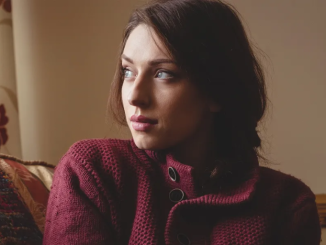
Even though TV’s most famous doctor was earning $700,000 per episode in the final season, *House* star Hugh Laurie said he still feels like a fraud.
Laurie regrets playing a “fake version” of a doctor instead of becoming a real one, as his father had hoped. He admitted that his “dad would have hated” the easier path he chose by becoming an actor.
Keep reading to find out why Laurie chose acting over medicine.
Dr. William (Ran) Laurie, Hugh’s father, had big dreams for his youngest son, born in June 1959.
Hugh Laurie was on track to follow in his father’s footsteps. His father was not only a respected physician but also a 1948 Olympic gold medalist in rowing and a graduate of a Cambridge college.
When British-born Hugh Laurie was studying at the same college as his father, he was also a member of the rowing team, with plans to train for the Olympics and then go to medical school.
However, Laurie discovered a drama club, the Cambridge Footlights, a sketch comedy group. There, he met actress Emma Thompson (*The Remains of the Day*) and his future comedy partner, Stephen Fry, who later co-starred with him in the 1997 film *Wilde*.
Laurie’s path changed completely.
Throughout the 1980s and 1990s, the now 64-year-old actor appeared in several TV shows, including the BBC sitcom *Blackadder*, where he co-starred with Fry.
Hugh Laurie also appeared in the 1995 film *Sense and Sensibility* with Emma Thompson, with whom he had once been in a relationship. He starred in Disney’s live-action *101 Dalmatians* (1996) and even made a guest appearance on *Friends*.
In 2004, Laurie was offered the chance to play a doctor in a new TV series called *House*, a medical drama that ran for eight seasons.
In his Golden Globe-winning role as Dr. Gregory House, Laurie dropped his British accent and perfectly played the narcissistic genius who led a teaching hospital in New Jersey.
During the show’s run, Laurie became Hollywood’s most popular doctor, gaining a huge global fan base. However, life as a celebrity also brought its own challenges.
“I had some pretty bleak times, dark days when it felt like there was no way out,” Hugh Laurie said in a 2013 interview with *Radio Times* (via *Daily Mail*). “I have a strong work ethic, so I was determined never to be late or miss a single day of filming. You wouldn’t catch me calling in sick, saying, ‘I think I’m getting the flu.’ But there were times when I’d think, ‘If I had a little accident on the way to the studio and got a couple of days off to recover, that would be great.’”
Those days off didn’t come until 2012, with the final season of *House*.
After that, Laurie kept busy, appearing in TV shows like *Veep* and the 2015 science fiction film *Tomorrowland*, which starred another famous TV doctor, George Clooney.
In 2016, Hugh Laurie took on another doctor role, this time as neuropsychiatrist Dr. Eldon Chance in the TV series *Chance*.
The *Maybe Baby* star explained to the *Los Angeles Daily News*, “As a gambler, my instinct is to walk away after even a modest win… Yet I was drawn back to this wonderful project that was simply irresistible.” Comparing *House* to his role in *Chance* (which was canceled after two seasons in 2017), Laurie said, “The characters are very different. Their medical practices and attitudes toward life are completely different.”
Despite his Hollywood fame, Laurie, who also starred in 2018’s *Holmes & Watson*, still feels he let his father down by not becoming a real doctor. His father, who passed away from Parkinson’s disease in 1998, had been a respected physician.
“My father was a real doctor. If it’s true that many men try to become versions of their father and fail, it seemed fitting that I ended up being a fake version of a doctor,” said Laurie, who also played a doctor in the 2005 film *The Big Empty*.
“My father had high hopes for me to follow him into medicine,” Hugh Laurie said. “I would have liked to become a doctor myself, and I still have dreams about being one. We live in a world of shortcuts, don’t we? And I took those shortcuts. Dad would have hated that.”
Laurie calls himself a “cop-out,” adding, “Honestly, this causes me a lot of guilt.”
What do you think about Hugh Laurie’s surprising confession? Please share your thoughts in the comments below and share this story so we can hear what others think!
If you have good vision, you can see the error right here!

Today presents another excellent opportunity to test your powers of observation and logical thinking with an entertaining visual puzzle that you can share with your friends and family.
Are you prepared for this fresh challenge that has left many individuals perplexed?
Locating the mistake in this cunning brain teaser eludes many, but how about you?
Let’s get started! Examine the picture below and see if you can identify the significant error!
Remember to inform us in the comments about the duration it took for you to discover it.
The image depicts a mother reprimanding her son.
Toys are strewn across the room, and a bed with a yellow cover is visible on the right side of the picture.
In the background, there is also an aquarium.
However, a glaring mistake is present in the image!
Have you identified it yet?
If you have, congratulations! You belong to the select group of individuals who spotted it right away.
If you’re still searching, don’t worry, as the answer is already provided below.


Ensure you’ve given it your best shot before scrolling down. No cheating!



Leave a Reply